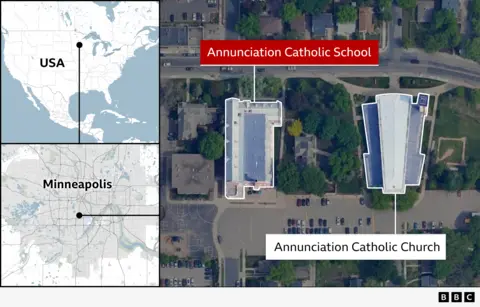In a bold move, Kenyan President William Ruto proclaimed his intention to construct a sizable church at the presidential office in Nairobi, asserting that he will personally fund the $9 million project. This announcement has incited outrage among many Kenyans, who voice their frustrations regarding the perceived intertwining of state affairs and religious institutions, particularly in a nation characterized by its religious diversity.
"I refuse to apologize for my decision to build a church," Ruto declared, emphasizing that external critics, whom he referred to as "the devil," would not deter him from realizing the project. The ambitious plan includes architectural designs for a church that can accommodate up to 8,000 worshippers, complete with stained glass windows, as showcased in local publications like the Daily Nation.
Critics have raised concerns about whether this initiative aligns with Kenya's secular constitution, especially at a time when citizens are grappling with rising living costs. Ruto insists he will fund the church independently; however, this has instigated questions about the appropriateness of erecting such a significant structure on government property. An outspoken MP remarked in an open letter that Kenya is not solely a Christian nation but a pluralistic society representing various faiths, including Islam and Hinduism.
Despite making Christianity a focal point of his presidency, earning him the nickname "deputy Jesus," Ruto's approach has been met with mixed reactions. He highlighted that the existing church at the presidential estate was lacking, being merely an iron-sheet structure, and expressed his commitment to replacing it with a more fitting edifice. Nonetheless, this declaration has not resonated well with everyone, especially among citizens who feel alienated by his public displays of faith and his religious fervor.
As discussions continue, this issue underscores the complex intersection of politics, religion, and public sentiment in Kenya, requiring careful consideration of the principles outlined in its constitution.
"I refuse to apologize for my decision to build a church," Ruto declared, emphasizing that external critics, whom he referred to as "the devil," would not deter him from realizing the project. The ambitious plan includes architectural designs for a church that can accommodate up to 8,000 worshippers, complete with stained glass windows, as showcased in local publications like the Daily Nation.
Critics have raised concerns about whether this initiative aligns with Kenya's secular constitution, especially at a time when citizens are grappling with rising living costs. Ruto insists he will fund the church independently; however, this has instigated questions about the appropriateness of erecting such a significant structure on government property. An outspoken MP remarked in an open letter that Kenya is not solely a Christian nation but a pluralistic society representing various faiths, including Islam and Hinduism.
Despite making Christianity a focal point of his presidency, earning him the nickname "deputy Jesus," Ruto's approach has been met with mixed reactions. He highlighted that the existing church at the presidential estate was lacking, being merely an iron-sheet structure, and expressed his commitment to replacing it with a more fitting edifice. Nonetheless, this declaration has not resonated well with everyone, especially among citizens who feel alienated by his public displays of faith and his religious fervor.
As discussions continue, this issue underscores the complex intersection of politics, religion, and public sentiment in Kenya, requiring careful consideration of the principles outlined in its constitution.

















